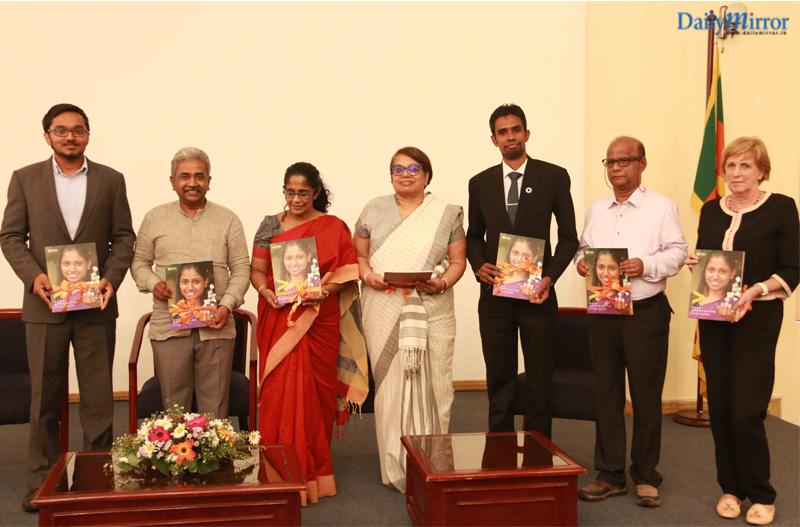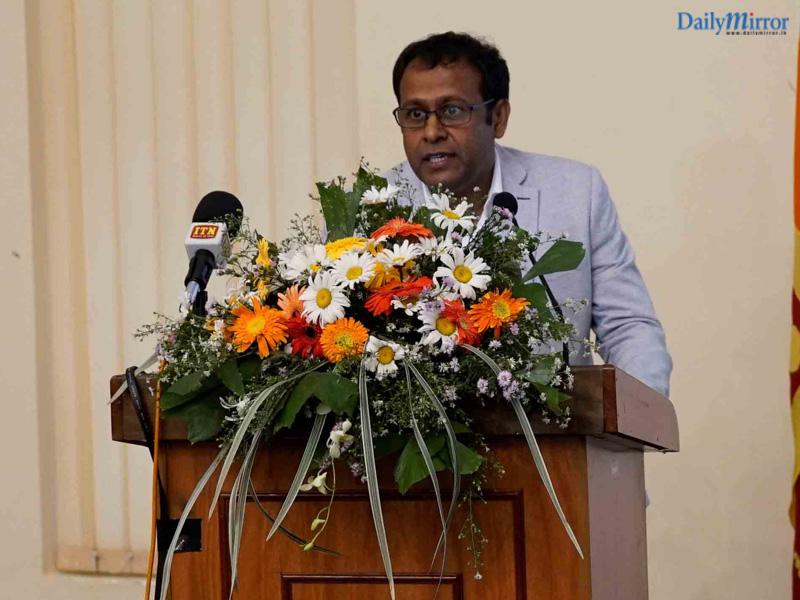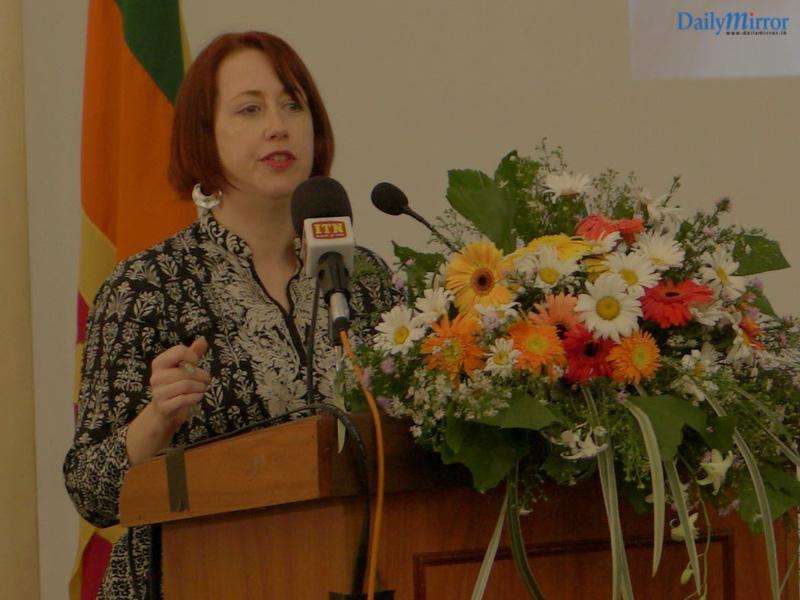12 March saw the launch of a landmark survey on the experiences and expectations, attitudes and aspirations of young Sri Lankans. ‘Next Generation Sri Lanka’ research, which seeks to amplify the voice of youth and the importance of their role in forming the society of the future, was launched at the Lighthouse Auditorium and Lawns where guests from a wide segment of society -including international organisations, NGOs, and key youth voices-, learnt what young Sri Lankans have to say about growing up in post-conflict Sri Lanka.
The British Council, an organisation for cultural relations and educational opportunities, is committed to engaging with the youth population - the next generation of influencers, leaders and shapers of the countries in which they work. As part of its commitment to putting research at the heart of its programming, and with the aim to exploring -and amplifying- the youth voice, the British Council has extended the ‘Next Generation’ global research series to Sri Lanka, now approaching its tenth year.
The British Council partnered with Sri Lanka’s pioneering non-government development organisation, the Lanka Jathika Sarvodaya Shramadana Sangamaya on this project. Also contributing to the successful completion of the project were the skills of an expert task force which consisted of Dr. Radhika Coomaraswamy, Prof. Sampath Amaratunge, Prof. Navaratna Bandara, Neela Marikkar and Sachinda Dulanjana, alongside a programme team from Sarvodaya Institute of Higher Learning, the British Council, and a research team led by Prof. Prasanna Perera, Professor in Economics, Department of Economics & Statistics, University of Peradeniya.
The survey explores how youth aged 18-29 have responded to the changes brought about by the peace and reconciliation process in the ten years since the end of a protracted and damaging civil war. With a focus on the views of Sri Lanka’s youth on governance and lifestyle, the values and beliefs that affect their lives, and the policies and conditions that support them in becoming creative, fulfilled and active citizens, this report is part of a broader approach by the British Council and Sarvodaya Shramadana Movement that will enable young voices from all communities to be heard, in the hope that this will ultimately contribute to policies that address their needs.
“Our country is in a period of historic transition after nearly three decades of violent conflict,” said Dr. Vinya Ariyaratne, President of the Sarvodaya Shramadana Movement. “We need to create a new Sri Lankan nation where basic needs and aspirations of all communities are fulfilled and peace and social justice are ensured.”
Dr. Ariyaratne further emphasised the importance of this research, “Youth in our country play a pivotal role in transforming our society and promoting reconciliation. Hence, this comprehensive study is of utmost importance and relevance to policy makers as well as practitioners. Sarvodaya is greatly privileged to have partnered with the British Council, and a top-notch research team from the University of Peradeniya for the landmark research study.”
“Sri Lanka as a country has been through a period of significant change, and it is important to empower the voices of our youth if we are to drive any change for the next generation.” commented Gill Caldicott, Director of the British Council in Sri Lanka.
From a representative sample of 2,636 youth from diverse backgrounds across the island, a mixed-methodology approach was used to inquire on identity, education, employment, experiences of violence, politics and agency, and on peace, reconciliation and the future. Some key findings extracted from the executive summary are as below:
- The survey shows that young Sri Lankans are proud of their Sri Lankan identity. Identifying as ‘Sri Lankan’ is a unifying term for youth from all communities. This finding is unexpected and differs from previous studies, and suggests that youth appear to be influenced by the promotion of ‘Sri Lankan Identity’ by policymakers.
- Participants noted that the school curriculum does not prepare students for the job market despite the main reason most participants seek education is to gain the knowledge and skills to get a good job. The majority feel that highly educated youth easily secure better employment than others.
- While reporting some slight improvement in job opportunities, they noted that the economy is stagnating at present, and also that blatant corruption meant that government jobs were effectively ‘sold’. They felt that government support for small-scale enterprises for youth and micro-finance schemes lack direction, as they are given without proper training or market analysis.
- A clear majority identified democracy as the best political system for Sri Lanka. They believe it is capable of establishing a strong economy, providing basic welfare, protecting human rights, valuing diversity, building alliances with other countries and even ending corruption. However, only an average of 15% of the survey participants were certain that democracy had been a benefit for them, their families, and to their ethnic and religious communities.
Following the launch, Sarvodaya will arrange nine provincial level advocacy programmes to communicate the research findings at the provincial level. The objective is to target local level youth organisations, provincial level government policy makers, youth and rights activists, NGOs, civil society organisations, as well as faith leaders who play a pivotal role in promoting reconciliation and peace.
Based on the results of the Next Generation Sri Lanka report, the main recommendation is for the formation of a government-backed National Action Plan for Youth. Focusing on the areas highlighted by the research, the aim is to ensure that relevant ministries and departments, civil society organisations and other stakeholders are able to take this initiative forward, continue the consultative process, and ensure that young people are meaningfully engaged in the process of shaping their own futures.


